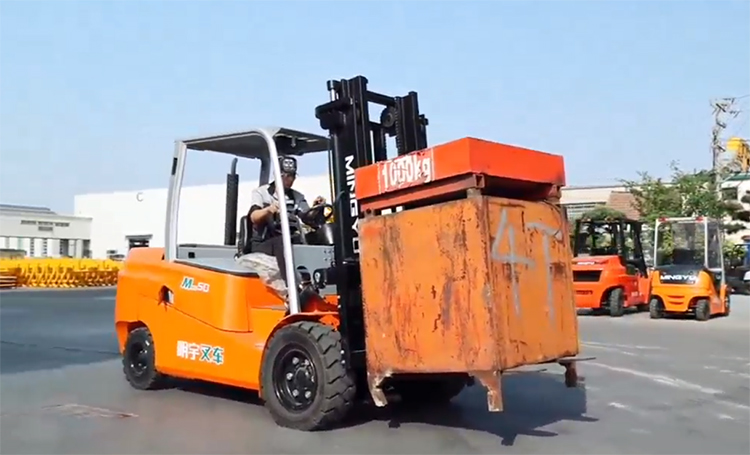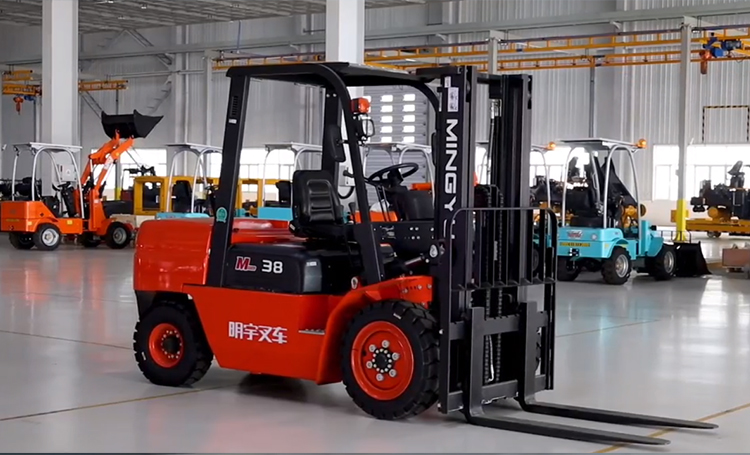
Introduction
Forklifts are essential tools in many industries, from manufacturing and warehousing to construction and transportation. They increase efficiency, productivity, and safety when operated correctly. However, the question of age eligibility for forklift operators often arises.
The minimum age requirement to operate a forklift varies depending on several factors, including federal, state, and local regulations, as well as industry-specific standards and employer policies. This article will delve into these factors to provide a comprehensive understanding of age restrictions and the necessary qualifications to operate a forklift safely and legally.
Legal Framework
Federal Regulations
The Occupational Safety and Health Administration (OSHA) sets federal standards for workplace safety, including the operation of powered industrial trucks, such as forklifts. While OSHA doesn't explicitly specify a minimum age for forklift operators, it mandates that all operators must be properly trained and certified. This training typically covers topics like forklift operation, safety procedures, load capacity, and emergency response.

State and Local Regulations
State and local governments may have additional regulations regarding the age of forklift operators. Some states may have specific age restrictions, while others may rely on federal guidelines. It's crucial to consult the relevant state and local labor laws to determine the exact age requirements in a particular jurisdiction.
International Standards
International organizations like the International Organization for Standardization (ISO) and the International Labor Organization (ILO) set standards for workplace safety, including forklift operation. While these standards often don't explicitly address age restrictions, they emphasize the importance of training, certification, and physical fitness for forklift operators.
Factors Influencing Age Requirements
Training and Certification
One of the primary factors influencing age requirements for forklift operators is the need for adequate training and certification. Most jurisdictions require operators to complete a formal training program that covers safety procedures, operating techniques, and emergency response. Certification often involves a written test and a practical evaluation to assess the operator's skills and knowledge.
Physical Requirements
Forklift operation can be physically demanding, requiring strength, agility, and good coordination. Some jurisdictions may have specific physical fitness requirements for forklift operators. These requirements may include tests of strength, vision, and reaction time.
Job Role and Responsibilities
The specific job role and responsibilities of a forklift operator can also influence age requirements. For example, operating a large, high-capacity forklift may require more experience and physical strength than operating a smaller, less powerful model.

The Role of Employers
Employers play a crucial role in ensuring the safe operation of forklifts. They are responsible for providing adequate training, conducting regular safety inspections, and enforcing safety policies. Employers must also comply with all federal, state, and local regulations regarding the age and qualifications of forklift operators.
Age Discrimination
It's important to note that employers must comply with age discrimination laws. While there may be legitimate reasons for age-related restrictions on certain jobs, employers must avoid discriminatory practices.
Case Studies and Real-World Examples
Case Study 1: A Young Worker Seeking a Forklift Operator Position
A 17-year-old high school student interested in a part-time job as a forklift operator.
Analysis of federal and state regulations to determine eligibility.
Potential options for obtaining necessary training and certification.
Case Study 2: An Older Worker Transitioning to a Forklift Operator Role
A 55-year-old worker with experience in warehouse operations considering a career change to forklift operation.
Assessment of physical fitness requirements and potential accommodations.
Exploration of training and certification options for older workers.
Real-World Examples of Age-Related Incidents and Accidents
Analysis of accident reports involving young and older forklift operators.
Identification of common causes of accidents and potential preventive measures.

Conclusion
The minimum age requirement for forklift operation is a complex issue influenced by various factors, including federal, state, and local regulations, as well as industry-specific standards. While there may be age restrictions in some cases, the primary focus should be on ensuring that all forklift operators are adequately trained, certified, and physically fit to perform their duties safely.
Employers should prioritize worker safety by providing comprehensive training, conducting regular safety inspections, and enforcing strict safety policies. By following these guidelines, we can minimize the risk of accidents and injuries associated with forklift operation.
Name: selena
Mobile:+86-13176910558
Tel:+86-0535-2090977
Whatsapp:8613181602336
Email:vip@mingyuforklift.com
Add:Xiaqiu Town, Laizhou, Yantai City, Shandong Province, China